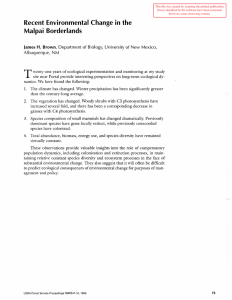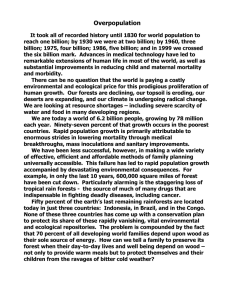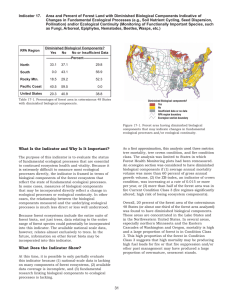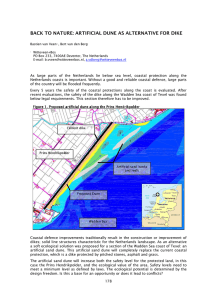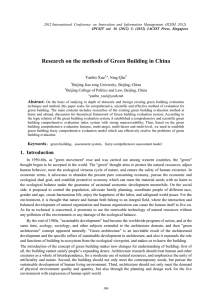Document 11872146
advertisement
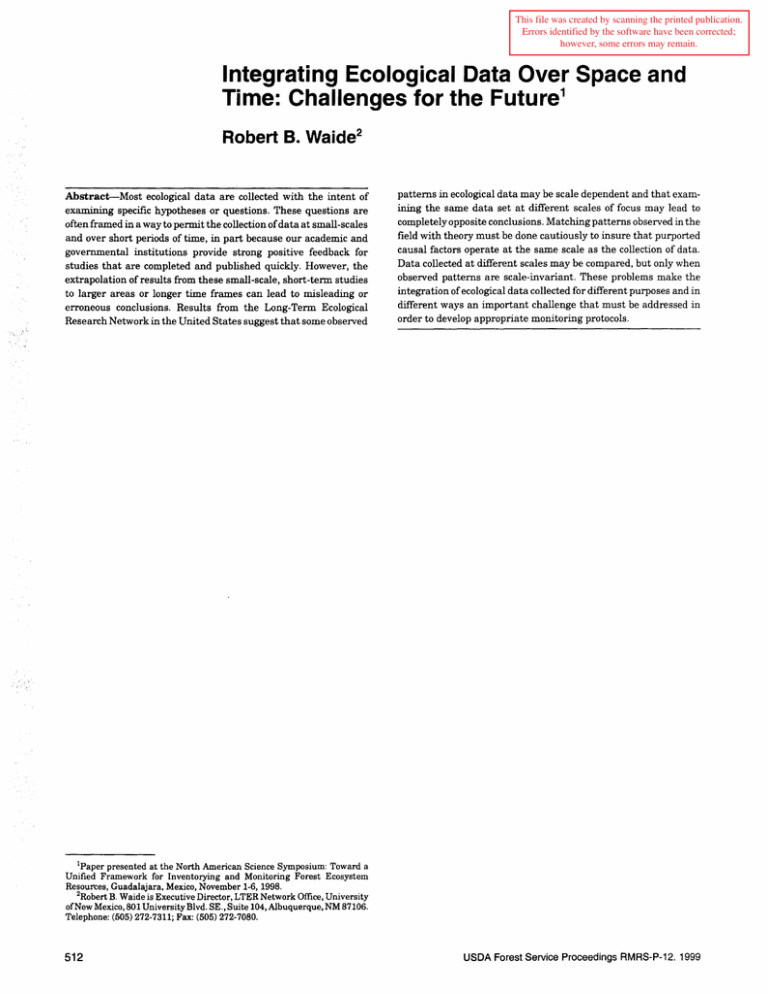
This file was created by scanning the printed publication. Errors identified by the software have been corrected; however, some errors may remain. Integrating Ecological Data Over Space and Time: Challenges for the Future 1 Robert B. Waide 2 Abstract-Most ecological data are collected with the intent of examining specific hypotheses or questions. These questions are often framed in a way to permit the collection of data at small-scales and over short periods of time, in part because our academic and governmental institutions provide strong positive feedback for studies that are completed and published quickly. However, the extrapolation of results from these small-scale, short-term studies to larger areas or longer time frames can lead to misleading or erroneous conclusions. Results from the Long-Term Ecological Research Network in the United States suggest that some observed patterns in ecological data may be scale dependent and that examining the same data set at different scales of focus may lead to completely opposite conclusions. Matching patterns observed in the field with theory must be done cautiously to insure that purported causal factors operate at the same scale as the collection of data. Data collected at different scales may be compared, but only when observed patterns are scale-invariant. These problems make the integration of ecological data collected for different purposes and in different ways an important challenge that must be addressed in order to develop appropriate monitoring protocols. Ipaper presented at the North American Science Symposium: Toward a Unified Framework for Inventorying and Monitoring Forest Ecosystem Resources, Guadalajara, Mexico, November 1-6,1998. 2Robert B. Waide is Executive Director, LTERNetwork Office, University of New Mexico, 801 University Blvd. SE., Suite 104, Albuquerque, NM 87106. Telephone: (505) 272-7311; Fax: (505) 272-7080. 512 USDA Forest Service Proceedings RMRS-P-12. 1999
